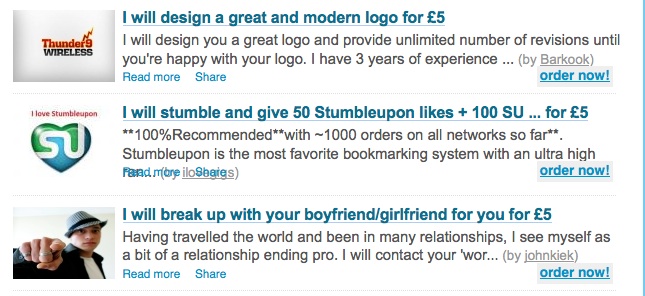This morning’s Observer column.
But it’s not just the exorbitant subscriptions that stink; it’s the intrinsic absurdity of what’s involved in the academic publishing racket. Most publishers, after all, have at least to pay for the content they publish. But not Elsevier, Springer et al. Their content is provided free by researchers, most of whose salaries are paid by you and me.The peer reviewing that ensures quality in these publications is likewise provided gratis by you and me, because the researchers who do it are paid from public money. One estimate puts the value of UK unpaid peer reviewing at a staggering £165m. And then the publishers not only assert copyright claims on the content they have acquired for nothing, but charge publicly funded universities monopoly prices to get access to it.The most astonishing thing about this is not so much that it goes on, but that people have put up with it for so long. Talk to university librarians about extortionist journal subscriptions and mostly all you will get is a pained shrug. The librarians know it’s a racket, but they feel powerless to act because if they refused to pay the monopoly rents then their academics – who, after all, are under the cosh of publish-or-perish mandates – would react furiously and vituperatively.Which is why the recent initiative by a Cambridge academic, Tim Gowers, is so interesting and important. Professor Gowers is a recipient of the Fields medal, which is the mathematics equivalent of a Nobel prize, so they don’t come more eminent than him…
One of the most encouraging things to happen int he last couple of weeks is to find that even the Economist, that bible of unfettered ‘free’ enterprise, has concluded that the racket has to be stopped.
George Monbiot published a characteristically robust critique of the racket last year in which he said that outfits like Elsevier “make Murdoch look like a socialist.”
If you’re an academic, you can sign up to the Cost of Knowledge pledge here. When I last checked, nearly 10,000 academics had signed up.
The first sign that Tim Gowers’s broadside was having a serious impact was the release by Elsevier of a typical PR-driven damage-limitation response: it’s headed “A MESSAGE TO THE RESEARCH COMMUNITY: JOURNAL PRICES, DISCOUNTS AND ACCESS”. Tim Gowers’s elegant dissection of it is here.
Some of my librarian colleagues have commented that the tipping point will come only when researchers in the medical and life sciences rebel. The physicists and mathematicians have long ago got the point — which is why arXiv.org is so successful and important in their world of scholarly publication. The good news is that the Wellcome Trust, which funds an awful lot of life-science research, now has an enlightened open-access publishing policy. What it needs to do next is to enforce it on its grantees. Only that way will the political naivete and solipsism of many researchers be overcome. Money talks, even in the most abstruse circles. All that is needed is a few well-publicised test cases in which recipients of Wellcome grants who don’t comply with the requirement are banned from further funding. Nothing concentrates the academic mind like the prospect of a funding refusal.
LATER: Jon Crowcroft writes:
“I’d like to point out that the leading academic publsher for Computer Science conference proceedings and many journals, the ACM, has for a long time allowed authors to put open access PDFs on their own institutional or personal web pages for free, plus now lets you publish a link that is free and openly reachable by anyone (not just paid up ACM digital library subscribers) to their archival version. For me, this is pretty exemplary. What is more, some of their conferences (which I am at now in califonia) publish 100% free and open access PDFs for papers _before_ the conference….given the prestige of the ACM, I see no excuse for computer science academic authors _ever_ to submit to paywalled ripoff commercial for profit journals or venues. Citation impact will doom them in any case, so there’s a game theory reason these bad people will lose in the end:)”


